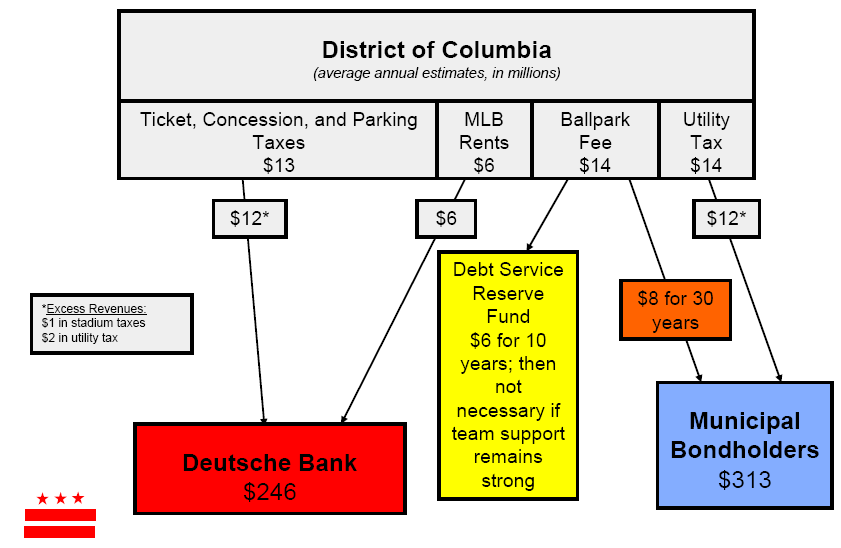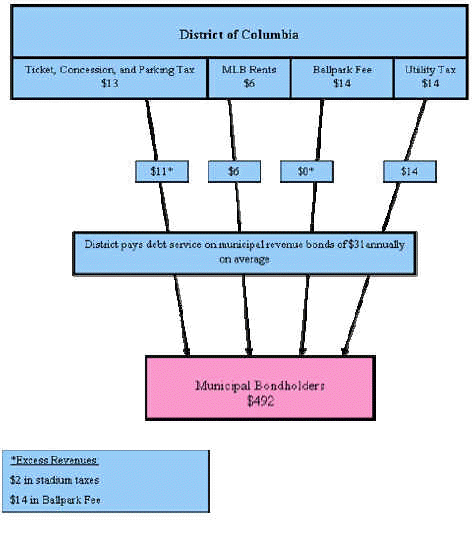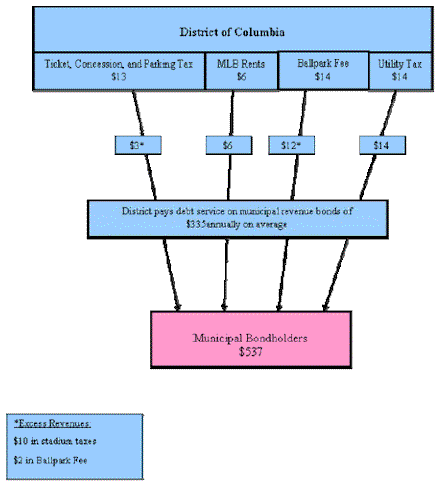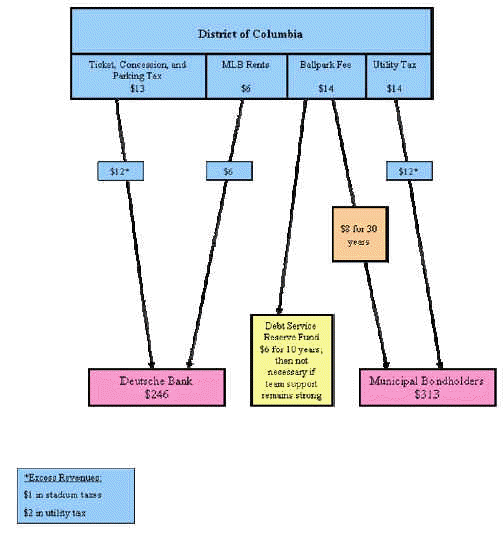|
Home
Bibliography
Calendar
Columns
Dorothy Brizill
Bonnie Cain
Jim Dougherty
Gary Imhoff
Phil Mendelson
Mark David Richards
Sandra Seegars
DCPSWatch
DCWatch
Archives
Council Period 12
Council Period 13
Council Period 14
Election 1998
Election 2000
Election 2002
Elections
Election
2004
Election 2006
Government and People
ANC's
Anacostia Waterfront Corporation
Auditor
Boards and Com
BusRegRefCom
Campaign Finance
Chief Financial Officer
Chief Management Officer
City Council
Congress
Control Board
Corporation Counsel
Courts
DC2000
DC Agenda
Elections and Ethics
Fire Department
FOI Officers
Inspector General
Health
Housing and Community Dev.
Human Services
Legislation
Mayor's Office
Mental Health
Motor Vehicles
Neighborhood Action
National
Capital Revitalization Corp.
Planning and Econ. Dev.
Planning, Office of
Police Department
Property Management
Public Advocate
Public Libraries
Public Schools
Public Service Commission
Public Works
Regional Mobility Panel
Sports and Entertainment Com.
Taxi Commission
Telephone Directory
University of DC
Water and Sewer Administration
Youth Rehabilitation Services
Zoning Commission
Issues in DC Politics
Budget issues
DC Flag
DC General, PBC
Gun issues
Health issues
Housing initiatives
Mayor’s mansion
Public Benefit Corporation
Regional Mobility
Reservation 13
Tax Rev Comm
Term limits repeal
Voting rights, statehood
Williams’s Fundraising Scandals
Links
Organizations
Appleseed Center
Cardozo Shaw Neigh.Assoc.
Committee of 100
Fed of Citizens Assocs
League of Women Voters
Parents United
Shaw Coalition
Photos
Search
What Is DCWatch?
themail
archives
|
GOVERNMENT OF THE DISTRICT OF COLUMBIA
OFFICE OF THE CHIEF FINANCIAL OFFICER
FOR IMMEDIATE RELEASE
Tuesday, April 11, 2005 |
CONTACT: Maryann Young
(202) 727-0058 |
CHIEF FINANCIAL OFFICER RECOMMENDS BEST FINANCING OPTION FOR THE
DISTRICT’S NEW BASEBALL STADIUM
(Washington, D.C.) Chief Financial Officer Natwar M. Gandhi announced
today his office’s determination of the best method for financing the
baseball stadium proposed to be built just west of the Anacostia River
in Southeast D.C. Gandhi recommended using $246 million provided by
Deutsche Bank. In exchange, the bank would receive the rent and the
ticket, concession and parking taxes collected at the stadium. For the
balance of the stadium’s cost, the District would issue revenue bonds
backed by a utility tax on non-residential customers and a reduced
Ballpark Fee, which were included in the District’s financing package
passed last December.
The Deutsche Bank proposal is one of two alternative financing plans
for the new stadium certified last month by the Office of the Chief
Financial Officer (OCFO), in accordance with the Private or Alternative
Stadium Financing and Cost Trigger Emergency Act of 2004. Once these
plans were certified, the Council of the District of Columbia requested
that the OCFO compare the certified plans with the original public
financing proposal and recommend the best option for the District.
Three criteria were used to determine the best financing option for
the new stadium: 1) the cost of capital to the District; 2) the impact
on future borrowing for the District; and 3) the effect on the Ballpark
Fee, which will be levied on District businesses with gross receipts
exceeding $5 million.
Use of the Deutsche Bank plan would reduce the amount of revenue
bonds the District originally planned to issue, and would allow the
Ballpark Fee to be reduced from $14 million annually to approximately $8
million annually after the first 10 years. It would also negate the need
for the District to issue general obligation bonds, which preserves the
city’s debt capacity for future needs.
Gandhi noted in his recommendation that the other certified
alternative financing plan by The Gates Group could be used to provide
the stadium with additional parking, which could help mitigate potential
parking issues in the surrounding neighborhood.
Back to top of page
Government of the District of Columbia
Office of the Chief Financial Officer
1350 Pennsylvania Avenue, N.W., Suite 209
Washington, DC
20004
(202) 727-2476 www.cfo.dc.gov
Natwar M. Gandhi
Chief Financial Officer
April 5, 2005
The Honorable Linda W. Cropp
Chairman
Council of the District of Columbia
1350 Pennsylvania Avenue, NW, Suite 504
Washington, DC
20004
Dear Chairman Cropp:
As requested in the Private or Alternative Stadium
Financing and Cost Trigger Emergency Act of 2004, the Office of the
Chief Financial Officer (OCFO) reviewed and evaluated the eight
alternative financing plans submitted to my office on or before January
18, 2005. On March 14, 2005, I certified the plans submitted by Deutsche
Bank and The Gates Group as alternative vehicles for financing the
construction of the new baseball stadium.
On March 15, 2005, the Council requested that I provide a
recommendation on what financing alternative is best for the District.
In undertaking this task, I examined the following scenarios:
- District General Obligation Bond Issuance
- District Revenue Bond Issuance
- Partial District Revenue Bond Issuance/$ 100 million
from The Gates Group
- Partial District Revenue Bond Issuance/$246
million from Deutsche Bank
To determine what is "best" for the District, I
evaluated these four alternatives according to the following criteria:
- What is the cost of capital to the
District?
- What is the impact on future
borrowing for the District?
- What is the effect on the Ballpark
Fee? (the tax levied on District businesses with gross receipts
exceeding $5 million)
Based on these criteria, I have determined that the best
financing plan for the District is to utilize $246 million from Deutsche
Bank and to issue District revenue bonds backed by the utility tax and a
portion of the Ballpark Fee. This plan is the best financial option for
the following reasons:
- The District needs $224 million less
in revenue bond proceeds.
- Utilizing revenue bonds rather than
General Obligation bonds will preserve the District's ability to issue GO bonds for future needs and can help
the District maintain a low cost of capital in the future.
- This plan allows the Ballpark Fee to
be reduced from $14 million annually to approximately $8 million
annually.
-
The remaining $6 million would only need to be
collected in the first ten years, in order to create a reserve fund;
thereafter, the $6 million would be necessary only if revenues fall
short.
Although I have not recommended the plan provided by The
Gates Group as the best financing option for the District, I recognize
that The Gates Group plan could provide the stadium with additional
parking, which could help to mitigate potential parking issues in the
neighborhood surrounding the stadium. The Mayor and the Council may
choose to consider this plan as the process moves forward.
I would also like to reiterate that the stadium could
provide an excellent economic development opportunity in the near
Southeast community. Some of the plans that were not certified could
provide a vehicle for the District to accelerate the economic
development of this area. The Mayor and the Council may also choose to
consider these plans as the development process moves forward.
Please feel free to contact me at (202) 727-0065 if you
have any questions.
Sincerely,
Distribution List
Councilmember Carol Schwartz (At-Large)
Councilmember David Catania (At -Large)
Councilmember
Phil Mendelson (At-Large) Councilmember Kwame R. Brown (At-Large)
Councilmember Jim Graham (Ward 1)
Councilmember Jack Evans (Ward 2)
Councilmember Kathleen Patterson (Ward 3)
Councilmember Adrian Fenty
(Ward 4)
Councilmember Vincent Orange (Ward 5)
Councilmember Sharon
Ambrose (Ward 6)
Councilmember Vincent C. Gray (Ward 7)
Councilmember
Marion Barry (Ward 8)
Robert Bobb, Deputy Mayor and City Administrator
Alfreda
Davis, Chief of Staff to the Mayor
Arte Blitzstein, Budget Director, Council of the District
of Columbia
Back to top of page
Office of the Chief Financial Officer
Government of the District of Columbia
Recommendation for Financing of Baseball Stadium
April 2005
Overview
- On September 29, 2004, the Mayor, DC Sports and Entertainment
Commission and Major League Baseball signed the Baseball Stadium
Agreement.
- Major League Baseball agreed to move a baseball team to
Washington, DC
- Mayor and the Sports and Entertainment Commission agreed to
renovate RFK stadium for the new team and to build a new
ballpark for the 2008 season.
- On December 21, 2004, the Council passed the Ballpark Omnibus
Financing and Revenue Act of 2004.
- Authorized the District to issue up to $534.8 million in bonds
to pay for the RFK renovation and new ballpark
- New Ballpark Fee, a utility tax on non-residential customers,
and increases in sales taxes at the stadium were imposed to
repay these bonds.
- On December 21, 2004, the Council passed the Private or
Alternative Stadium Financing and Cost Trigger Emergency Act of
2004.
- Required the Chief Financial Officer (CFO) to request and
review supplemental or alternative stadium financing plans and
proposals
- Plans must substantially reduce the annual amount of the
Ballpark Fee required to repay bonds issued to construct the
baseball stadium.
Financial Certification
- In order to be certified as a financing
alternative, the plans must:
- Reduce the total amount of bonds the District would
need to issue
- Reduce the Ballpark Fee needed to support debt
service
- Provide additional financial benefits with minimal
additional risk
- Certified Plans (March 14,
2005)
- Deutsche Bank
- The Gates Group
- Not Certified Plans (March 14,
2005)
- Baseball Village
Associates
- DC Baseball Stadium
Associates
- DSG Capital Group
- The Dubois Group
- Global Development Partners
- HooverMilstein
What’s “Best”
- On March 15, 2005, Council asked
the CFO to recommend the “best” financing alternative for the District for a total
project cost of $486 million.
- The CFO revised the cost estimate
for the project on March 30, 2005
- The new cost estimate for the
total project is $533 million.
- Note that interest rates have
increased over the past few months.
- Criteria for determining
“best” alternative for the District:
- Interest Rate
- Annual Payments
- Total Cost
- Impact on Debt
Capacity of District
- Likely View of Rating
Agencies
- Effect on Ballpark Fee
District’s Revenue Bond Plan
Original Revenue Bond Financing Plan
(Approved December 21, 2004)
- Total Proceeds required for Project Costs
- Total Amount of Revenue Bonds Needed to be Issued
- 5.21% Interest Rate (on March 8, 2005)
- Debt Service on Bonds
- $34 million
annually with bond insurance
- Sources of Repayment ($47 million)
- $14
million annually from Ballpark Fee
- $14 million average annually from Utility Tax
- $19 million average
annually from Stadium Taxes and Team Rent
Original Revenue Bond Financing Plan with Revised Costs
and New Interest Rates
(March 30, 2005)
- Total Proceeds required for
Project Costs
- Total Amount of Revenue Bonds
Needed to be Issued
- 5.36% Interest Rate (on March 30,
2005)
- Debt Service on Bonds
- $35 million
annually with bond insurance
- Sources of Repayment ($47
million)
- $14 million
annually from Ballpark Fee
- $14 million average annually from Utility
Tax
- $19 million average annually
from Stadium Taxes and Team Rent
A “trigger”
may be required by the investment community to increase collections
from the Ballpark Fee such that 80% of debt service repayment comes
from stable sources.
Financing Options
(Estimated amounts are rounded, in millions)
| |
|
Not Recommended
|
Recommended
|
| |
|
CASE 1
|
CASE 2
|
CASE 3
|
CASE 4
|
| |
|
General Obligation Bonds
|
Revenue Bonds1
|
Gates/Revenue Bond Mix
|
Deutsche Bank/Revenue Bond Mix1
|
|
1
|
Funds Needed for Project
|
$533
|
$533
|
$533
|
$533
|
|
2
|
Cost of Issuance
|
$8
|
$17
|
$14
|
$12
|
|
3
|
Reserves (including Capitalized Interest)
|
0
|
$36
|
$28
|
$62
|
|
4
|
Total Funds Needed
|
$541
|
$586
|
$575
|
$607
|
|
5
|
Construction Fund Earnings and 2005 Revenues
|
$49
|
$49
|
$49
|
$48
|
|
6
|
Funds Available from Certified Plans
|
0
|
0
|
$100
|
$246
|
|
7
|
Amount of District Bond Proceeds
|
$492
|
$537
|
$426
|
$313
|
|
8
|
Average Annual District Debt Service
|
$31
|
$35
|
$28
|
$20
|
|
9
|
Average Annual Alternative Financing Repayment
|
0
|
0
|
$112
|
$18
|
|
10
|
Total Average Annual Debt Service
|
$31
|
$35
|
$39
|
$38
|
|
11
|
Interest Rate3
|
4.85%
|
5.36%
|
6.40%
|
5.31%
|
|
12
|
Total Cost in Today’s Dollars3
|
$522
|
$550
|
$612
|
$561
|
|
13
|
Effect on Debt Capacity
|
reduces GO debt capacity
|
limited effect on GO debt capacity
|
limited effect on GO debt capacity
|
most limited effect on GO debt capacity
|
|
14
|
Likely View of Rating Agencies
|
direct debt
|
indirect debt
|
partial indirect debt
|
partial indirect debt
|
|
15
|
Maximum Ballpark Fee Required Per Year for First 10 Years
|
$8
|
$144
|
$10
|
$14
|
|
16
|
Ballpark Fee Required After 10 Years
|
0
|
$14
|
$9
|
$8
|
1. A “trigger” may be required by the investment
community to increase collection from the Ballpark Fee.
2. Assumes
collections of approximately $11 million in parking revenues.
3. Interest rates and total cost are subject to market
conditions, and may change as the financing plan is taken to the
market.
4. May need as much as $16 million in the first 10 years in
order to meet requirements of the investment community.
CFO’s Financing Recommendation
RECOMMENDATION
- Sell $18 million of in-stadium
taxes and team rents to Deutsche Bank for an up-front payment of
$246 million
- Issue revenue bonds that will
yield $313 million, to be repaid from $12 million of utility taxes and
$8 million of the Ballpark Fee
RATIONALE
- Plan is only slightly more
expensive than pure revenue bond option
- Plan has a highly
limited impact on the future direct debt capacity of District
- District will need $224 million less in bond
proceeds than if the District issued revenue bonds for the entire
project
- Rating agencies will likely view the District bond portion as
indirect debt and not direct District debt
- The Ballpark Fee needed to support
District debt service is reduced from $14 million to $8 million
- The remaining $6 million will only
be needed for 10 years to create a reserve fund; thereafter it will
not be needed so long as team
support remains strong
OTHER CONSIDERATIONS
- With this plan, District can sell
the revenue streams that will be most difficult to sell
- Plan reduces interest rate risk
because can be implemented more quickly
- Plan delivers proceeds more
quickly which decreases risk to 2005 revenues
- A “trigger” may be required by
the investment community to increase collection from the Ballpark Fee
if team support is not strong
Flow of Funds
Recommended Case

Other Opportunities
Economic Development
- The stadium can provide an
excellent economic development opportunity in the near Southeast neighborhood
- Some of the
plans that were not certified could provide a vehicle for the District
to accelerate the economic development of the area
surrounding the stadium.
- With defined
economic development criteria, the Mayor and the Council may choose to consider some of these plans as the process moves
forward
Parking Options
- The Gates Group plan has been
certified as a financial mechanism. Gates would provide
the District with up to $175 million.
- The stadium could utilize
additional parking.
- The Gates Group plan could provide
the District with the ability to construct a garage using upfront funds, which could mitigate parking
issues during baseball games.
- The District could generate new
parking revenues.
- The Mayor and the
Council may choose to consider this plan as the process moves forward.
Debt Service on Municipal GO Bonds
$47 Million Average Annual Flow of Funds (Dollars in Millions)

Debt Service on Municipal Revenue Bonds1
$47 Million Average Annual Flow of Funds (Dollars in Millions)

1. In order to sell the bonds to the investment
community, 80% of the debt service repayment must come from the Ballpark
Fee and Utility Tax.
Debt Services Under Gates Group Plan1
$58 Million Average Annual Flow of Funds (Dollars in Millions)

1. The District would issue revenue bonds for the
remaining amount of required project funds. In order to sell the bonds
to the investment community, 80% of the debt service repayment must come
from stable sources like the Ballpark Fee and Utility Tax.
Debt Service Under Deutsche Bank Plan
$58 Million Average Annual Flow of Funds (Dollars in Millions)

|







![]()